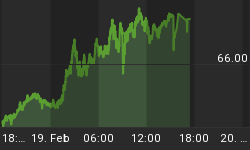The Department of Treasury may set up a lending fund for oil companies, Secretary Steven Mnuchin told Bloomberg this week, adding that there was nothing final yet.
“One of the components we’re looking at is providing a lending facility for the industry,” Mnuchin said. “We’re looking at a lot of different options, and we have not made any conclusions.”
Besides direct loans—which the Federal Reserve would implement—the federal government may also buy stakes in some oil companies in addition to providing loans. It could also ask these companies to reduce production, according to a Bloomberg source.
The larger oil companies that hold an investment-grade rating would either have to fend for themselves on the debt market or take advantage of the loan program that the Fed has set up for small businesses, even if they are not exactly small businesses. The actual small businesses, in the meantime, are asking the Fed to adjust the rules of the loan program to allow them to use the funds to pay off existing debt.
Investment-grade companies have options. In addition to the main street business loan program, they can take part in the Fed’s bond-buying program. Those with lower ratings, however, would need other options that the Treasury is considering in discussions with banks, Mnuchin told Bloomberg. He added that the Fed lending to such higher-risk companies was not an option.
As Bloomberg notes, however, the oil price crash has seen many previously investment-grade companies suffer downgrades by rating agencies. The position of even some of the largest players in the U.S. shale patch, such as Occidental, is now more precarious in terms of financial aid. Exxon has also been downgraded, and while not in junk territory, Moody’s has warned that further downgrades were on the way lest the company changed its financial plans.
By Irina Slav for Oilprice.com
More Top Reads From Safehaven.com:

















